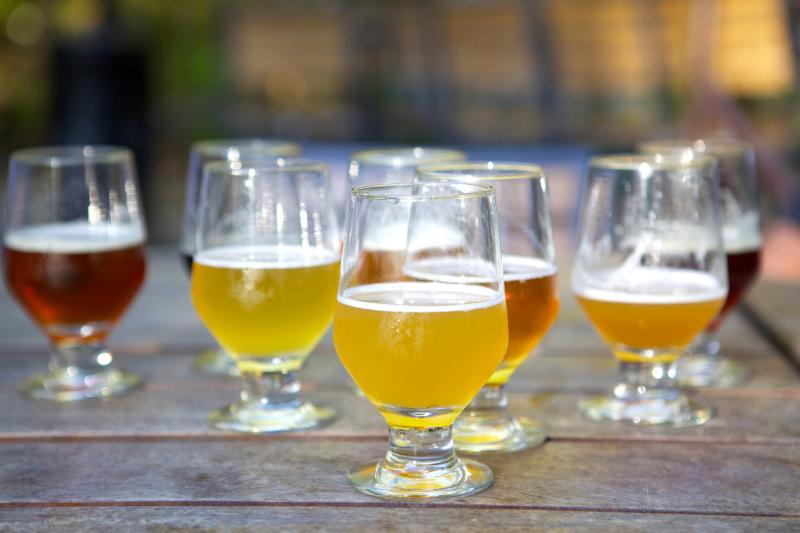 Variety of craft beers
Variety of craft beersIn Japanese patients, drinking alcohol daily may impair insulin secretion and increase the risk of diabetes, a recent study has found.
Researchers conducted a retrospective study of 452 men and 659 women (both groups aged 40–78 years) who were made to complete a 75-g oral glucose tolerance test and accomplish a medical questionnaire. Insulin sensitivity was measured according to the homeostasis model assessment of β-cell function (HOMA-β) and insulinogenic index.
Participants were grouped into four according to alcohol consumption patterns: nondrinkers (n=387) and alcohol drinkers who consumed 0–19.9 g/day (n=453), 20–39.9 g/day (n=109) and ≥40.0 g/day (n=129).
The highest alcohol intake category was significantly more likely to have decreased HOMA-β values than the nondrinkers (odds ratio [OR], 2.68, 95 percent confidence interval [CI], 1.27–5.74). This was especially true among men (OR, 3.11, 95 percent CI, 1.30–7.78).
Similarly, levels of γ-glutamyltranspeptidase were also significantly elevated in the highest category of alcohol intake (OR, 3.24, 95 percent CI, 1.38–7.95), especially in men (OR, 4.56, 95 percent CI, 1.73–13.42).
Glycated haemoglobin levels after 5 years were also nominally more likely to be higher in the 0–19.9 (OR, 1.65, 95 percent CI, 0.53–5.61), 20–39.9 (OR, 3.42, 95 percent CI, 0.62–16.29) and ≥40.0 (OR, 4.01, 95 percent CI, 0.51–15.63) grams of alcohol per day consumption groups, respectively, relative to nondrinking controls.